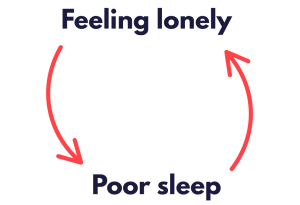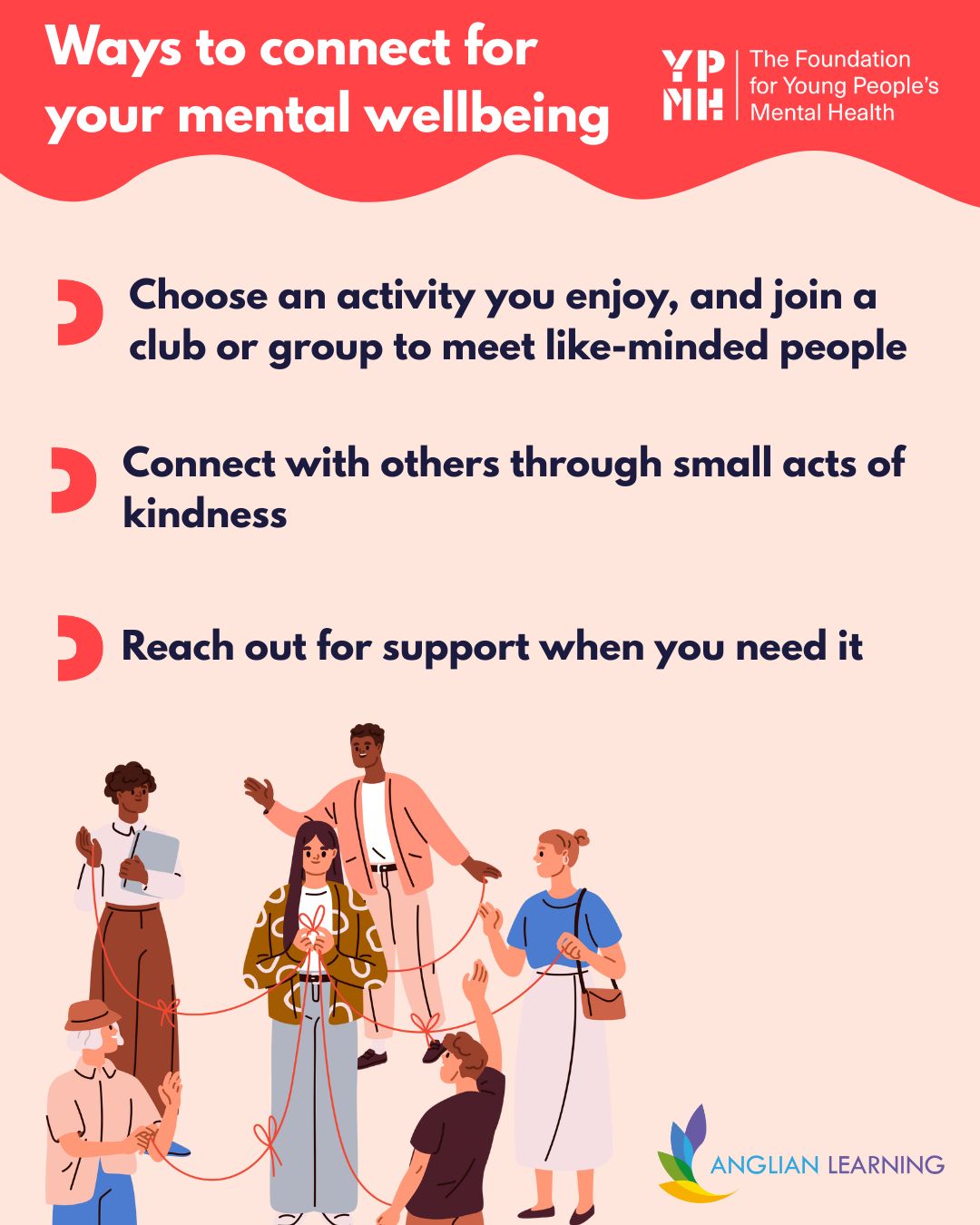Mental Health Awareness Week 2025
How to Reduce Loneliness: The Mental Health Benefits of Strong Social Connections
This week marks Mental Health Awareness Week. In partnership with The Foundation for Young People’s Mental Health (YPMH), we are exploring the topic of loneliness, and the mental health benefits of strong social connections. Loneliness isn’t a mental health condition, but it can seriously affect your mental wellbeing. Research shows that strong supportive relationships lower stress, enhance resilience and protect against depression, anxiety and burnout.
In this blog, YPMH explore the science behind how social connections support mental wellbeing – and practical evidence-based strategies to help you feel more connected and less alone.
Why social connections matter more than ever
Many of us now spend more time online or working remotely. While these tools help us stay in touch, they don’t always provide the same benefits as face-to-face interaction. As a result, more people are feeling socially disconnected, even when messaging friends or joining video calls.
Loneliness is a normal human emotion – but when it persists, it becomes a serios public and personal health concern. It can affect your body and brain over time, particularly if it’s ongoing.
Understanding the difference between loneliness and social isolation can help:
- Loneliness is the feeling of being alone or disconnected, even if you’re around others
- Social isolation is the lack of social contact – such as not seeing or speaking to people often.
Building meaningful social connections – where you feel seen, heard and supported – is one of the most protective things you can do for your mental health.
The science: how loneliness affects your brain and mental health
Strong social connections benefit your brain chemistry and mental health. Persistent loneliness, on the other hand, activates biological responses that increase vulnerability to anxiety, depression and cognitive decline.
1. It increases chronic stress
Loneliness over-activates the body’s stress response (the hypothalamic-pituitary-adrenal axis), keeping cortisol levels high. Chronically elevated cortisol is linked to anxiety, fatigue, poor sleep and trouble concentrating. It also affects neurogenesis, the brains ability generate new neurons, and also affects the immune system.
2. It raises inflammation in the body
Loneliness has been linked to higher levels of increased immune system activity and inflammation. While inflammation is the body’s response to perceived threats, chronic inflammation can disrupt neurotransmitter systems by altering the metabolism of brain chemicals like serotonin and dopamine – both of which play important roles in mood, motivation and emotional wellbeing.
3. It disrupts the nervous system
Social connection helps regulate the autonomic nervous system, which controls heart rate and how calm or alert we feel. When we feel isolated, the sympathetic nervous system – responsible for the ‘fight or flight’ response – can become overactive, while parasympathetic activity (linked to relaxation) decreases. This makes it harder to fully relax and can lead to feeling constantly tense or on edge.
4. It affects sleep
Good quality sleep is essential for helping us process emotions and manage stress. However, loneliness is associated with lighter, more fragmented sleep and lower sleep efficiency, meaning people spend less time in deep restorative sleep. Poor sleep can, in turn, worsen feelings of loneliness and isolation, creating a negative cycle.

5. It disrupts how the brain processes emotions and rewards, and reduces the brain’s response to positive experiences
Chronic loneliness affects brain areas involved in emotional regulation and reward, including the prefrontal cortex and amygdala. It also reduces the sensitivity of the brain’s reward system, making enjoyable experiences feel less pleasurable or satisfying – a phenomenon known as anhedonia, common in depression. Together, these changes contribute to increased negative thinking, low mood and reduced enjoyment of everyday life…
Read the full article on The Foundation for Young People’s Mental Health website by clicking here.

01223 340340
Anglian Learning, Bottisham Village College, Lode Road, Bottisham, Cambridge, CB25 9DL
